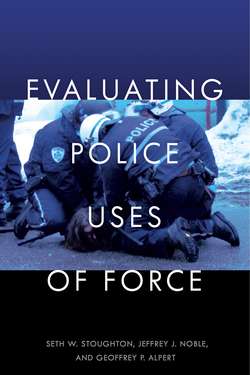Читать книгу Evaluating Police Uses of Force - Seth W. Stoughton - Страница 44
На сайте Литреса книга снята с продажи.
Regulatory Law
ОглавлениеLike doctors, lawyers, and cosmetologists, police officers are, in most states, required to earn and maintain a state-issued certification (some states use the term “license”). According to Roger Goldman, the country’s leading expert on police certification regimes, most states require most officers to be certified. State certifications are typically issued by a Police Officer Standards and Training Commission (a “POST Commission”) or a Criminal Justice Standards and Training Commission (a “CJSTC”), although a few states, including Massachusetts and New York, do not have such commissions. With the exception of California and Rhode Island, all of the states that have a POST Commission—as well as New York, which does not—can revoke an officer’s state certification for an officer’s on-duty behavior, although when they can do so depends on the idiosyncrasies of state law.
As of 2018, every state now also sets minimum training standards for officers. Typically, state statutes do not set out specific requirements, instead delegating that responsibility to the POST Commission or CJSTC. Some states, however, have adopted specific training requirements as a matter of statute. In 2018, voters in Washington state approved Initiative 940, which amended state law by requiring “violence de-escalation training”12 and “mental health training,”13 both of which must be provided in an officer’s first fifteen months of employment and periodically over the course of their careers. The exact content of that training was left to the state POST Commission, which, by statute, must “consult with law enforcement agencies and community stakeholders” and consider a range of what the legislature determined were relevant factors, including “[d]e-escalation in patrol tactics and interpersonal communication training, including tactical methods that use time, distance, cover, and concealment, to avoid escalating situations that lead to violence” and “[a]lternatives to the use of physical or deadly force so that deadly force is used only when unavoidable and as a last resort.”14
Directly or indirectly, state law regulates police training—potentially including training on tactics and the use of force—as well as certification and decertification. Clearly, then, the state law standard that can be used to evaluate an officer’s use of force can have regulatory ramifications.
